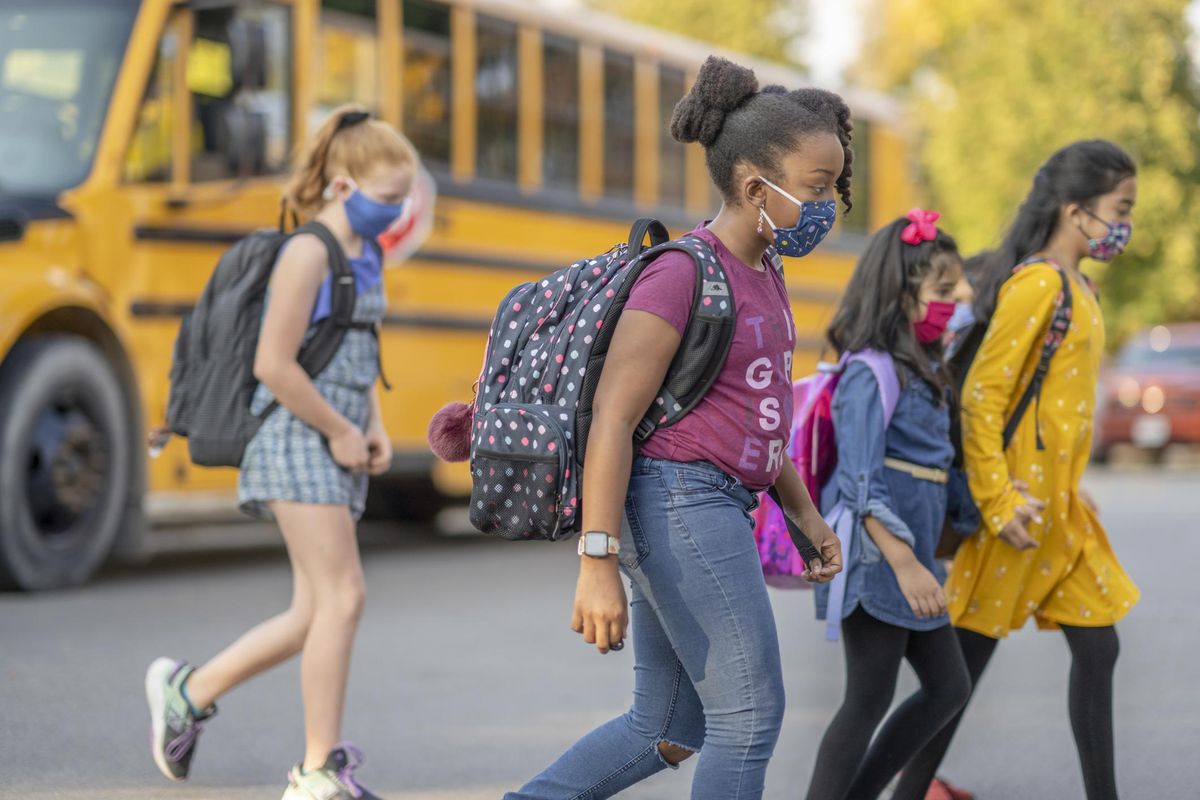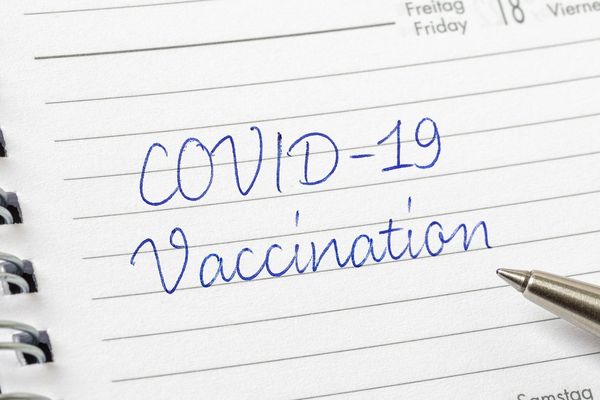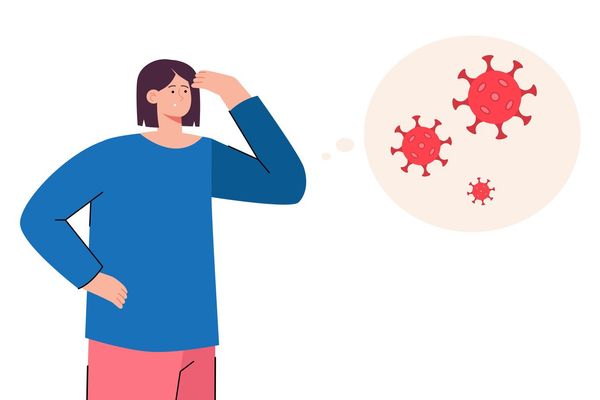This article was developed in partnership with the National Association of Pediatric Nurse Practitioners.
Kate Schultz, a high school teacher from Madison, WI, has made back-to-school preparations many times since she started teaching 20 years ago, but never quite like this. Going back to the classroom looks very different in the age of Covid-19, and Schultz is planning accordingly. She knows her students may be stressed about the virus, and she wants to be ready — to reassure them and to help keep them safe.
"Last school year, my students had many challenges coping with the pandemic," Schultz said. When her district returned to in-person learning last April, only about half of her students came back. "This reflects the fear and stress they were feeling, and many likely still are."
As we head into another school year shaped by the pandemic, there are steps you can take to ensure your kids are physically and mentally prepared. Getting them caught up on appointments and vaccines, listening to their fears, and practicing good hygiene will help your kids — and you — start the school year off on the right foot.
Making up for missed appointments
Before the school year starts, you'll want to make sure your kids get their annual well-child checkups and required vaccinations (as well as recommended ones, like the flu shot and the Covid-19 vaccine, if they're eligible). This is especially important because so many people put off routine care, including things like dental cleanings and checkups for their kids, as well as cancer screenings for themselves, during the pandemic.
Annual appointments are when many kids receive their scheduled vaccinations, so those who missed last year's checkup may also have missed vaccines. Between mid-March and mid-April 2020, healthcare providers (HCPs) in the Vaccines for Children program ordered about 2.5 million fewer doses of all routine non-influenza vaccines compared to the same period the year before.
Don't worry if your kids are behind on vaccinations, though — the Centers for Disease Control (CDC) has created a catch-up immunization schedule, which provides a guide for parents and HCPs to getting kids caught up on their vaccines safely.
Mental health matters
Starting a new school year is often a source of nervous excitement for kids, and that may be especially true for those who are returning to the classroom after a year or more of remote learning. With Covid-19 cases rising again in most parts of the country, your kids might be worried about getting sick. How can you ease their anxiety?
One of the most important things you can do is listen to your children. Let them ask questions, and answer them honestly, without sugarcoating. Reassure them that it's perfectly normal to be scared — lots of grown-ups are, too — but that schools and public health officials are working hard to keep kids safe.
"Front-load conversations about what to expect as they go back to school," Schultz said. "Focus on the positives and the joy and excitement of being able to learn together with friends. Reinforce gratitude for that which we formerly took for granted."
According to Mary Koslap-Petraco, DNP, PPCNP-BC, CPNP, FAANP, a nurse practitioner, adjunct clinical assistant professor at the Stony Brook School of Nursing, consultant for the Immunization Action Coalition and member of the National Association of Pediatric Nurse Practitioners (NAPNAP), it's also important to give children a sense of agency. "When talking to children about Covid, I like to frame it by saying that we can't control the germs, but we can control what we do to protect ourselves from them."
When it comes to masking, practice makes perfect
Although pretty much everyone over the age of 2 has spent at least some time wearing a mask, many kids who learned remotely last year may need practice masking for long periods. Getting them used to wearing a mask for longer and longer stretches of time before school starts can help them prepare.
You can also help normalize masking by wearing one yourself. "I think the best way to help kids cope with mask-wearing is to lead by example," said Colleen Hayes, an educator in Madison, WI, who has worked with students of all ages. "I try to wear fun masks and compliment a kid's mask, and I keep my mask on without complaint while around kids."
Now is also a good time to brush up on proper handwashing, even (or maybe especially) with your teenager. Good hand hygiene can help protect them not just from Covid-19, but from other contagious illnesses like colds and flu.
Keep sick kids home
Now more than ever, people understand the importance of staying home (and keeping kids home) when sick. Before the pandemic, parents might have been tempted to send their sniffly child to school to avoid scrambling for last-minute childcare or calling in sick themselves, but Covid-19 has taught us that the best way to prevent spreading illness is to stay away from other people.
Some schools may have tolerated sick children in the classroom in the past, understanding that perhaps parents didn't have a choice, but now many are requiring daily symptom checks and firmly insisting that children stay home if they're even a little bit sick. "Every sniffle has to be addressed," said Koslap-Petraco. "We can't just blow these things off anymore."
Don’t worry about the so-called “learning gap”
Schultz advises parents who are worried that their child may have fallen behind academically because of the pandemic to let those fears go. "Don't worry about the false narrative that there is now a 'learning gap' or that kids will be entering school 'behind,'" she said. "We all experienced the collective trauma of a pandemic, not to mention the ongoing struggles for racial justice and the tumultuous 2020 election. We all did the best we could in navigating unprecedented times."
Instead of worrying about academics, Schultz suggested, savor the end of the season. "Focus on spending time with your children at the end of summer exploring, playing, talking and reading together."
This resource was created with support from Merck.
- Getting Caught Up on Back-to-School Vaccines - HealthyWomen ›
- Back-to-School Ready - HealthyWomen ›
- Let's Make Back to School a Back to Self (Care) Season for Women ... ›
- How to Keep Your Kids Healthy This Fall - HealthyWomen ›
- What You Need to Know About Back-to-School Vaccines - HealthyWomen ›
- Top 5 Back-to-School Health Tips for Moms - HealthyWomen ›







